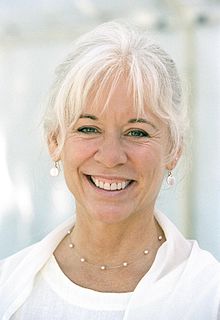A Quote by David Hume
We have no other notion of cause and effect, but that of certain objects, which have always conjoin'd together, and which in all past instances have been found inseparable. We cannot penetrate into the reason of the conjunction. We only observe the thing itself, and always find that from the constant conjunction the objects acquire an union in the imagination.
Related Quotes
Know that for the human mind there are certain objects of perception which are within the scope of its nature and capacity; on the other hand, there are, amongst things which actually exist, certain objects which the mind can in no way and by no means grasp: the gates of perception are closed against it.
Imagination is strong in a man when that particular function of the brain which enables him to observe is roused to activity without any necessary excitement of the sense. Accordingly, we find that imagination is active just in proportion as our sense are not excited by external objects. A long period of solitude, whether in prison or in a sick room; quiet, twilight, darkness-these are the things that promote its activity; and under their influence it comes into play of itself.
Sir, sorrow is inherent in humanity. As you cannot judge two and two to be either five, or three, but certainly four, so, when comparing a worse present state with a better which is past, you cannot but feel sorrow. It is not cured by reason, but by the incursion of present objects, which bear out the past.
Our initial sensory data are always "first derivatives," statements about differences which exist among external objects or statements about changes which occur either in them or in our relationship to them. Objects and circumstances which remain absolutely constant relative to the observer, unchanged either by his own movement or by external events, are in general difficult and perhaps always impossible to perceive. What we perceive easily is difference and change and difference is a relationship.
My pictures are devoid of objects; like objects, they are themselves objects. This means that they are devoid of content, significance or meaning, like objects or trees, animals, people or days, all of which are there without a reason, without a function and without a purpose. This is the quality that counts. Even so, there are good and bad pictures.
Many great persons have been of opinion that love is no other thing than complacency itself, in which they have had much appearance of reason. For not only does the movement of love take its origin from the complacency which the heart feels at the first approach of good, and find its end in a second complacency which returns to the heart by union with the thing beloved--but further, it depends for its preservation on this complacency, and can only subsist through it as through its mother and nurse; so that as soon as the complacency ceases, love ceases.
True, absolute silence and true, absolute love are not different. Absolute silent awareness overflows with simple, fulfilled absolute love. Objects - people, nature, emotions - may or may not appear. Objects are not needed and they are welcomed. The joy of this full silence is uncaused and unlimited. Always here, always discovering itself. It is the treasure, and it is hidden only when we refuse to keep quiet and find out who we are.
Cities have always offered anonymity, variety, and conjunction, qualities best basked in by walking: one does not have to go into the bakery or the fortune-teller's, only to know that one might. A city always contains more than any inhabitant can know, and a great city always makes the unknown and the possible spurs to the imagination.
The camera machine cannot evade the objects which are in front of it. When the photographer selects this movement, the light, the objects, he must be true to them. If he includes in his space a strip of grass, it must be felt as the living differentiated thing it is and so recorded. It must take its proper but no less important place as a shape and a texture in relationship to the mountain tree or what not, which are included.
As you are aware, no perceptions obtained by the senses are merely sensations impressed on our nervous systems. A peculiar intellectual activity is required to pass from a nervous sensation to the conception of an external object, which the sensation has aroused. The sensations of our nerves of sense are mere symbols indicating certain external objects, and it is usually only after considerable practice that we acquire the power of drawing correct conclusions from our sensations respecting the corresponding objects.







































